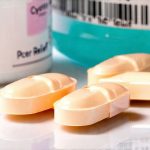Urinary tract infections (UTIs) are incredibly common, affecting millions of people annually—disproportionately women, but certainly not exclusively. The discomfort associated with UTIs – burning sensations during urination, frequent urges to go, and potential back pain – can be debilitating. Because of this, many seek quick relief, often turning to over-the-counter (OTC) remedies or prescription medications designed to address the infection or its symptoms. A significant portion of these solutions come in two primary forms: pills/capsules and powders, often containing ingredients like D-mannose or cranberry extract. Understanding whether there’s a meaningful difference in how effectively these different formulations work is crucial for making informed choices about UTI management. It’s important to remember that self-treating UTIs can sometimes mask underlying issues, so consulting with a healthcare professional remains the most reliable approach, especially if symptoms are severe or persistent.
The market for UTI remedies has expanded rapidly, fueled by consumer demand for readily available solutions. This proliferation of options leads to valid questions about efficacy and bioavailability—how much of an active ingredient actually gets absorbed into the body to produce its intended effect. While both pill/capsule and powder formulations aim to deliver similar active ingredients, the way they achieve this differs considerably. Factors like absorption rates, digestive processes, and even individual physiological differences can all play a role in determining which form might be more effective for a particular person. This article will explore these distinctions, focusing on the potential advantages and disadvantages of each formulation without offering medical advice but providing information to facilitate better understanding.
Pill vs. Powder: Absorption & Bioavailability
The core difference between UTI pills/capsules and powders lies in how quickly and efficiently the active ingredient is absorbed by the body. Pills often have coatings designed for delayed release, which can be beneficial for certain medications but might slow down the availability of key compounds needed to address a UTI. Capsules, similarly, need to dissolve first before the contents are released. Powders, on the other hand, generally bypass these initial stages. They are often formulated to dissolve more readily in water or directly in the digestive system, potentially leading to faster absorption. However, this isn’t always straightforward.
- The speed of absorption isn’t necessarily synonymous with better effectiveness. Some active ingredients might require a slower release for optimal impact, while others benefit from rapid delivery.
- Formulation matters significantly. Even within “powder” formulations, the particle size and any added excipients (inactive ingredients) can affect how well the powder dissolves and is absorbed.
- Individual digestive health plays a critical role. People with compromised digestion or certain medical conditions might absorb nutrients differently, impacting the effectiveness of both pills and powders.
Ultimately, while powders tend to offer faster absorption due to their inherent characteristics, this isn’t a universal rule. The specific active ingredient, its formulation within the pill/powder, and the individual taking it all contribute to the final outcome. It’s also vital to note that bioavailability isn’t just about speed; it’s about how much of the active ingredient actually reaches systemic circulation where it can exert its effect.
Considerations for Specific Ingredients: D-Mannose & Cranberry Extract
D-mannose is a naturally occurring sugar often used in UTI remedies because of its ability to prevent E. coli bacteria (the most common cause of UTIs) from adhering to the urinary tract walls. When it comes to D-mannose, powder formulations may offer an edge due to faster absorption. This rapid delivery could potentially enhance its preventative effect by quickly saturating the urinary tract with mannose molecules. Cranberry extract, rich in proanthocyanidins (PACs), works similarly—inhibiting bacterial adhesion. However, PACs are notoriously difficult for the body to absorb effectively.
- Powder formulations of cranberry extract may also offer a slight advantage, particularly if they utilize specific extraction methods designed to enhance PAC bioavailability.
- The concentration of active ingredients is crucial. A higher concentration in either form doesn’t automatically equate to better results; it’s about achieving an effective dose that the body can actually absorb and utilize.
- Many cranberry extract supplements also include vitamin C, which may boost absorption but could also cause gastrointestinal upset in some individuals.
It’s important to remember that research on the bioavailability of both D-mannose and PACs is ongoing. While powders may show promise for improved absorption, more robust studies are needed to definitively confirm these benefits and understand how different formulations compare in real-world scenarios. Furthermore, the quality and purity of ingredients can vary significantly between brands, impacting overall effectiveness.
Factors Influencing Individual Response
The human body is complex, and what works well for one person may not work as effectively for another. Several individual factors influence how someone responds to UTI remedies, regardless of whether they choose a pill or powder formulation:
- Gut Health: A healthy gut microbiome supports optimal nutrient absorption. Individuals with digestive issues like IBS or leaky gut might experience reduced bioavailability, potentially diminishing the effectiveness of both pills and powders. Probiotic supplementation alongside UTI treatment may be considered (with healthcare provider guidance).
- Hydration Levels: Adequate hydration is essential for flushing out bacteria and supporting urinary tract health. Dehydration can hinder the effectiveness of any UTI remedy by reducing urine flow and allowing bacteria to linger. Aiming for 8 glasses of water daily, or more if actively battling a UTI, is recommended.
- Severity & Type of Infection: Mild UTIs might respond well to OTC remedies, but severe infections require prompt medical attention and prescription antibiotics. The type of bacteria causing the infection also matters; D-mannose and cranberry extract primarily target E. coli, and may not be as effective against other pathogens.
Dosage & Administration Best Practices
Regardless of the chosen formulation—pill or powder—following dosage instructions carefully is paramount. Many OTC UTI remedies recommend taking multiple doses throughout the day, ensuring consistent levels of active ingredients in the urinary tract.
- Read the Label: Always adhere to the manufacturer’s recommended dosage guidelines. Do not exceed the suggested daily intake.
- Timing Matters: Some powders are best mixed with water and consumed on an empty stomach for optimal absorption, while others might be better tolerated with food. Pills/capsules may have specific instructions regarding whether they should be taken with or without meals.
- Consistency is Key: For preventative measures, consistent daily use of UTI remedies (as directed) can help reduce the risk of recurrent infections. However, it’s important to note that these are not substitutes for proper hygiene and medical care.
When to Seek Professional Medical Help
While OTC UTI remedies can offer symptomatic relief or act as preventative measures, they should never replace professional medical advice. It’s crucial to consult a doctor if you experience any of the following:
- Fever
- Back pain
- Nausea or vomiting
- Blood in your urine
- Symptoms that persist for more than 24-48 hours despite treatment
- Recurrent UTIs (more than two infections within six months)
These symptoms could indicate a more serious infection requiring antibiotic treatment. Ignoring these warning signs can lead to complications like kidney infection, which is a medical emergency. A healthcare professional can accurately diagnose the cause of your UTI and recommend the most appropriate course of action. Remember that self-treating may mask underlying health issues or contribute to antibiotic resistance if used inappropriately.
Disclaimer: This article provides general information about UTI remedies and does not constitute medical advice. Always consult with a qualified healthcare professional for diagnosis and treatment of any medical condition.





















